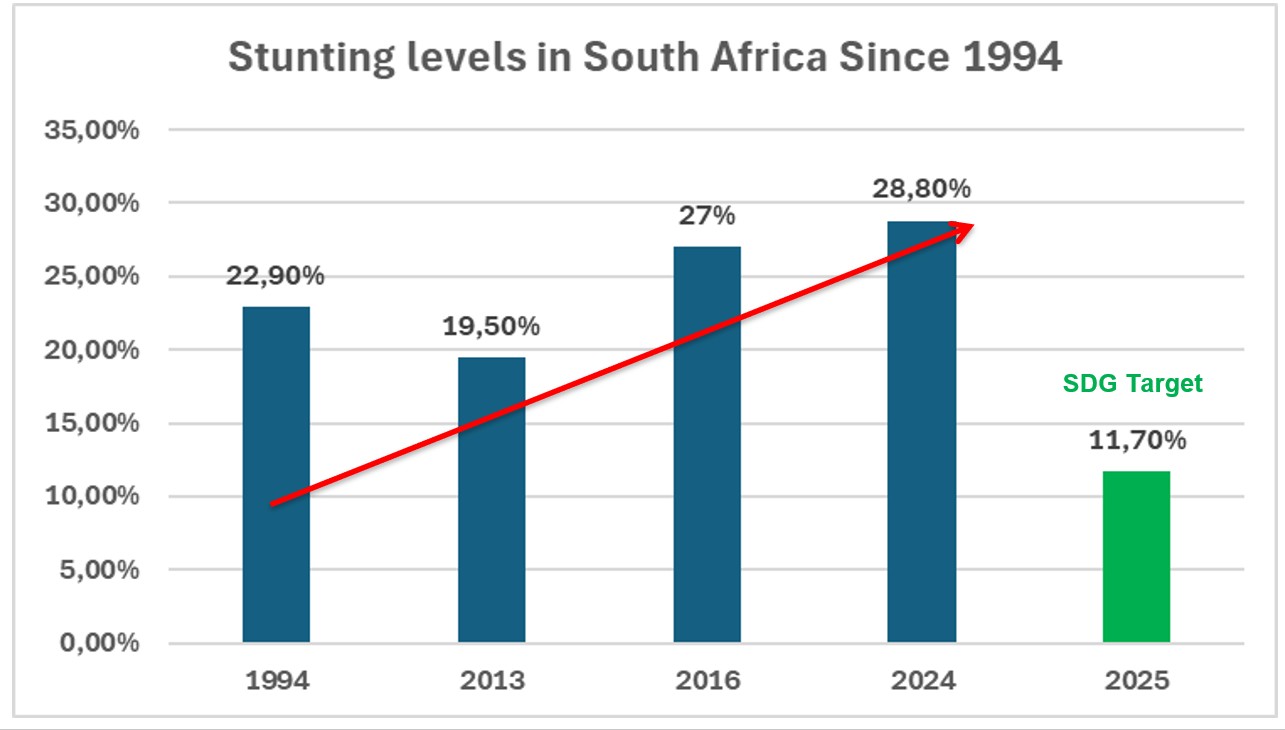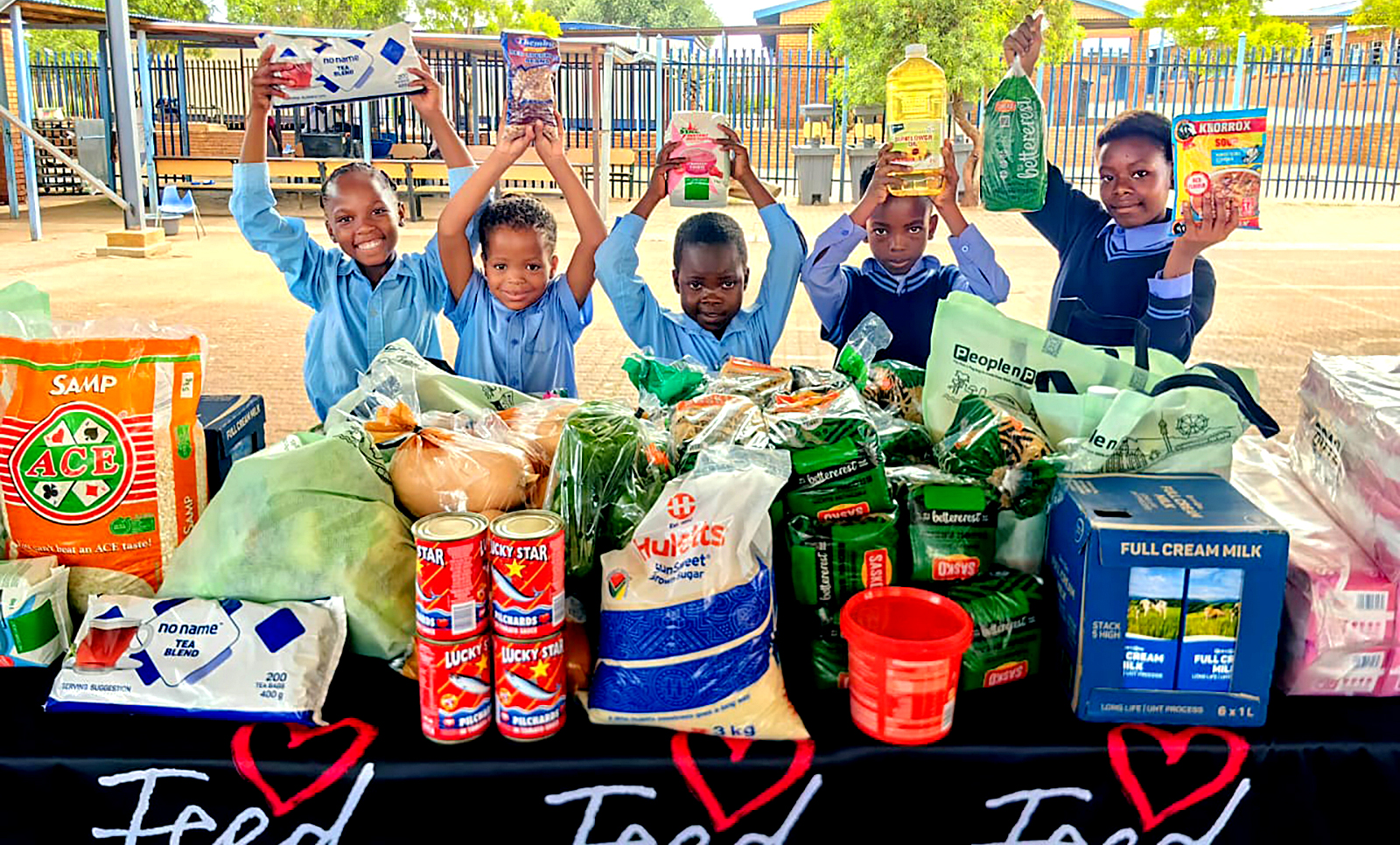All Article Properties:
{
"objectType": "Article",
"id": "2926067",
"signature": "Article:2926067",
"url": "https://prod.dailymaverick.co.za/article/2025-10-12-good-nutrition-doesnt-have-to-be-complicated-or-expensive-say-advocates-for-child-health/",
"shorturl": "https://www.dailymaverick.co.za/article/2926067",
"slug": "good-nutrition-doesnt-have-to-be-complicated-or-expensive-say-advocates-for-child-health",
"contentType": {
"id": "1",
"name": "Article",
"slug": "article",
"editor": "default"
},
"views": 0,
"comments": 0,
"preview_limit": null,
"rating": 0,
"excludedFromGoogleSearchEngine": 0,
"status": "publish",
"title": "Good nutrition doesn’t have to be complicated or expensive, say advocates for child health",
"firstPublished": "2025-10-12 18:28:17",
"lastUpdate": "2025-10-13 18:56:49",
"categories": [
{
"id": "387188",
"name": "Maverick News",
"signature": "Category:387188",
"slug": "maverick-news",
"typeId": {
"typeId": "1",
"name": "Daily Maverick",
"slug": "",
"includeInIssue": "0",
"shortened_domain": "",
"stylesheetClass": "",
"domain": "prod.dailymaverick.co.za",
"articleUrlPrefix": "",
"access_groups": "[]",
"locale": "",
"preview_limit": null
},
"parentId": null,
"parent": [],
"image": "",
"cover": "",
"logo": "",
"paid": "0",
"objectType": "Category",
"url": "https://prod.dailymaverick.co.za/category/maverick-news/",
"cssCode": "",
"template": "default",
"tagline": "",
"link_param": null,
"description": "",
"metaDescription": "",
"order": "0",
"pageId": null,
"articlesCount": null,
"allowComments": "1",
"accessType": "freecount",
"status": "1",
"children": [],
"cached": false
}
],
"access_groups": [],
"access_control": false,
"counted_in_paywall": true,
"content_length": 8291,
"contents": "<p><span style=\"font-weight: 400;\">During Covid-19 child food insecurity came into the spotlight, especially for the 10 million children who couldn’t access food at school due to frequent school closures to contain the virus. </span></p><p><span style=\"font-weight: 400;\">This is when the </span><a href=\"https://feedthenation.org.za/\"><span style=\"font-weight: 400;\">Feed the Nation Foundation</span></a><span style=\"font-weight: 400;\"> was born. It now reaches more than two million learners annually, and because of this access has become a conduit for other organisations that want to help fight malnutrition and food insecurity who collaborate with the foundation to access beneficiaries. </span></p><p><span style=\"font-weight: 400;\">“We realised that there was this huge gap that no one really knew about. No one was really talking about school feeding schemes. Because schools had closed and everyone was at home, kids that were at home weren’t getting the meals that they were getting through school. And we also discovered single child-headed households were particularly vulnerable,” said Vaughan Pierce, a trustee of Feed the Nation Foundation. </span></p><p><span style=\"font-weight: 400;\">Pierce says the country cannot afford to treat hunger background noise. </span></p><p><span style=\"font-weight: 400;\">“Malnutrition is not just about food. It robs children of their ability to learn, weakens their immune systems, and steals entire futures. We urgently need to act, at a household, community and national level.”</span></p><p><span style=\"font-weight: 400;\">Pierce says intentionality is significant when planning hunger alleviation efforts, so the foundation consulted a dietician to create meal hampers that had the necessary fats, carbs, proteins and vegetables. </span></p><p><span style=\"font-weight: 400;\">“We used this information to formulate a food pack that we then give to the family. Most often on a weekly basis, as opposed to a monthly basis, because the family may battle to ration and apportion it if it’s given monthly. And it’s also a big thing for the kids to be able to cart it home.</span></p><p><span style=\"font-weight: 400;\">It’s donated at school and then they’ve got to walk home and take it home, and they got their school bags and all that. It’s quite a lot for them. So all of that is factored in,” Pierce said.</span></p><p><span style=\"font-weight: 400;\">He added that they didn’t think the foundation would still be going after five years as it was initially a Covid-19 intervention, but due to the need they had kept it going. He highlighted that collaborating with community leaders and school principals helped the foundation provide what was needed and fit the context of the communities they were assisting.</span></p><h4><b>Small-scale farming</b></h4><p><span style=\"font-weight: 400;\">Because of this the foundation had added the element of small-scale farming to help the food security project be more sustainable, and hopefully help children learn about nutrition while participating in cultivating their school gardens.</span></p><p><span style=\"font-weight: 400;\">“We’ve had to slowly move away from just giving to a model of how we empower you to feed yourself with the school gardens, community gardens and the empowering of communities, schools and individuals to feed themselves, but also knowing what to grow in the climate that they live in, what grows well. Some people are growing what they want to eat, but the environment or the climate doesn’t allow it. And it doesn't grow. It isn’t successful,” said Pierce.</span></p><p><span style=\"font-weight: 400;\">Although interventions such as food hampers and community gardens assist, organisations are faced with a mammoth task because of how widespread poverty is in South Africa. A total of </span><a href=\"https://www.statista.com/statistics/1127838/national-poverty-line-in-south-africa/\"><span style=\"font-weight: 400;\">13.2 million people in South Africa </span></a><span style=\"font-weight: 400;\">were living on under $2.15 (about R37) a day, which is the </span><a href=\"https://www.statista.com/statistics/1263290/number-of-people-living-in-extreme-poverty-in-south-africa/\"><span style=\"font-weight: 400;\">international absolute poverty threshold</span></a><span style=\"font-weight: 400;\"> defined by the World Bank. An estimated 25 million people are on a variation of grants. The child grant is under the basic poverty line amount of R769 as it sits at R520. A</span><span style=\"font-weight: 400;\">n individual living in South Africa on less than R1,109 per month is considered poor. Individuals having R796 a month available for food are living below the poverty line, according to South African national standards. </span></p><h4><b>Multi-faceted interventions</b></h4><p><span style=\"font-weight: 400;\">Dr Edzani Mphaphuli is the executive director of Grow Great — a campaign focused on ending child stunting by 2030 through maternal and child health interventions, public advocacy, and community support. Mphaphuli called on every South African, from households to policymakers, to make children’s nutrition a national priority. </span></p><p><span style=\"font-weight: 400;\">“When every child has access to food for health, we can achieve health for all,” she said.</span></p><p><span style=\"font-weight: 400;\">Mphaphuli added: “For many families, nutritious food is simply out of reach, whether due to poverty, limited access, or a lack of support and information during pregnancy and early childhood.</span></p><p><span style=\"font-weight: 400;\">“When mothers and caregivers don’t have the resources or knowledge to provide proper nutrition during this time, children often suffer long-term consequences. Today, one in three children under two and one in four children under five are stunted in South Africa. That means too many children are not reaching their full potential physically, cognitively and emotionally.”</span></p><p><img loading=\"lazy\" class=\"alignnone size-full wp-image-2929005\" src=\"https://www.dailymaverick.co.za/wp-content/uploads/2025/10/stunting-levels-in-SA.jpg\" alt=\"\" width=\"1285\" height=\"730\" /><br /><em>Source: Grow Great</em></p><p><span style=\"font-weight: 400;\">The Grow Great campaign has educational programmes that aim to decrease these numbers by increasing education and support, especially aimed at mothers and families and health workers. </span></p><p><span style=\"font-weight: 400;\">One of them is Flourish, a social franchise of antenatal and postnatal classes that create safe, supportive spaces for moms. </span></p><p><span style=\"font-weight: 400;\">“Through Flourish, mothers gain knowledge and confidence on breastfeeding, child nutrition, and responsive parenting, helping them give their babies the best possible start.”</span></p><p><span style=\"font-weight: 400;\">There is also a campaign empowering community health workers with training, tools and motivation to track child growth, promote exclusive breastfeeding, and support families with practical nutrition guidance.</span></p><p><span style=\"font-weight: 400;\">The Department of Health helps support communications efforts around nutrition.</span></p><p><span style=\"font-weight: 400;\">Liezel Engelbrecht, Nutrition Strategy Lead for the Hold My Hand Accelerator at DG Murray Trust, echoed Mphaphuli’s sentiments and told Daily Maverick that adequate nutrition was everyone’s responsibility, from civil society to the government and corporate.</span></p><h4><b>Missing intervention gaps</b></h4><p><span style=\"font-weight: 400;\">When asked for two reasons she thought malnutrition was persistent in South Africa, and what intervention gaps were missing, she said malnutrition persisted mainly because of poverty and the high cost of nutritious food. Many families simply couldn’t afford healthier options, even when they knew which foods would better support their health. </span></p><p><span style=\"font-weight: 400;\">“The second reason is that our food and social systems are not fully aligned — policies and interventions that impact agriculture, health, education and social protection often have different incentives and work in silos. We need stronger coordination and investment to close the food gap, especially during pregnancy and early childhood, when nutrition has the greatest lifelong impact,” Engelbrecht said.</span></p><p><span style=\"font-weight: 400;\">The </span><a href=\"https://www.holdmyhand.org.za/\"><span style=\"font-weight: 400;\">Hold My Hand Accelerator</span></a><span style=\"font-weight: 400;\"> for Children and Teens, in partnership with </span><a href=\"https://dgmt.co.za/\"><span style=\"font-weight: 400;\">DG Murray Trust</span></a><span style=\"font-weight: 400;\"> is in close collaboration with the Presidency. </span></p><p><span style=\"font-weight: 400;\">Their key areas span from promoting a Maternal Support Grant (MSG) to extend income protection to pregnant women to exploring how to improve food fortification compliance (food fortification is the practice of deliberately increasing the content of one or more micronutrients in food products to improve their nutritional quality and provide public health benefits).</span></p><p><span style=\"font-weight: 400;\">They also advocate for retailers and the government to make healthy, protein-rich foods more affordable through the “</span><a href=\"https://dgmt.co.za/wp-content/uploads/2023/10/Advocate-Double-Discounted-List-of-Ten-Best-Buy-Foods-V2-Online.pdf\"><span style=\"font-weight: 400;\">10 Best Buys” initiative,</span></a><span style=\"font-weight: 400;\"> in partnership with the Grow Great Campaign. </span></p><p><span style=\"font-weight: 400;\">Engelbrecht said: “South Africa has enough food; the challenge is who can access it. If we want to reduce stunting, prevent disease and grow a healthier generation, we must treat nutrition as a shared national priority. That means stronger leadership, smarter partnerships, and clear accountability for results. Good nutrition shouldn’t be a luxury; it’s a basic foundation for development.” </span></p><p><span style=\"font-weight: 400;\">National Nutrition Week is celebrated every year from 9 to 15 October to create awareness of the importance of eating healthy. The theme for National Nutrition Week 2025 is “Eat Right for a Better Life”. This theme emphasises the importance of making healthy food choices and promoting balanced diets to enhance overall wellbeing. </span><b>DM</b></p><p><span style=\"font-weight: 400;\"></p><p><iframe title=\"Cost of living\" width=\"100%\" height=\"224\" frameborder=\"0\" marginwidth=\"0\" marginheight=\"0\" data-tally-src=\"https://tally.so/embed/wQLlOX?dynamicHeight=1\"></iframe></span></p><p><script>var d=document,w=\"https://tally.so/widgets/embed.js\",v=function(){\"undefined\"!=typeof Tally?Tally.loadEmbeds():d.querySelectorAll(\"iframe[data-tally-src]:not([src])\").forEach((function(e){e.src=e.dataset.tallySrc}))};if(\"undefined\"!=typeof Tally)v();else if(d.querySelector('script[src=\"'+w+'\"]')==null){var s=d.createElement(\"script\");s.src=w,s.onload=v,s.onerror=v,d.body.appendChild(s);}</script></p>",
"teaser": "Good nutrition doesn’t have to be expensive, say advocates for child health",
"externalUrl": "",
"sponsor": null,
"authors": [
{
"id": "250436",
"name": "Naledi Sikhakhane ",
"image": "https://cdn.dailymaverick.co.za/dailymaverick/wp-content/uploads/2023/03/Naledi-1-1.jpg",
"url": "https://www.dailymaverick.co.za/author/naledi-sikhakhane/",
"editorialName": "naledi-sikhakhane",
"department": "",
"name_latin": ""
}
],
"description": "‘Malnutrition is not just about food. It robs children of their ability to learn, weakens their immune systems, and steals entire futures. We need to act, at a household, community and national level.’",
"keywords": [
{
"type": "Keyword",
"data": {
"keywordId": "129215",
"name": "food justice",
"url": "https://www.dailymaverick.co.za/article_tag//",
"slug": "food-justice",
"description": "",
"articlesCount": 0,
"replacedWith": null,
"display_name": "food justice",
"translations": null,
"collection_id": null,
"image": ""
}
},
{
"type": "Keyword",
"data": {
"keywordId": "244688",
"name": "School Feeding Schemes",
"url": "https://www.dailymaverick.co.za/article_tag//",
"slug": "school-feeding-schemes",
"description": "",
"articlesCount": 0,
"replacedWith": null,
"display_name": "School Feeding Schemes",
"translations": null,
"collection_id": null,
"image": ""
}
},
{
"type": "Keyword",
"data": {
"keywordId": "259640",
"name": "School nutrition",
"url": "https://www.dailymaverick.co.za/article_tag//",
"slug": "school-nutrition",
"description": "",
"articlesCount": 0,
"replacedWith": null,
"display_name": "School nutrition",
"translations": null,
"collection_id": null,
"image": ""
}
},
{
"type": "Keyword",
"data": {
"keywordId": "360370",
"name": "national nutrition week",
"url": "https://www.dailymaverick.co.za/article_tag//",
"slug": "national-nutrition-week",
"description": "",
"articlesCount": 0,
"replacedWith": null,
"display_name": "national nutrition week",
"translations": null,
"collection_id": null,
"image": ""
}
},
{
"type": "Keyword",
"data": {
"keywordId": "384833",
"name": "Naledi Sikhakhane",
"url": "https://www.dailymaverick.co.za/article_tag//",
"slug": "naledi-sikhakhane",
"description": "",
"articlesCount": 0,
"replacedWith": null,
"display_name": "Naledi Sikhakhane",
"translations": null,
"collection_id": null,
"image": ""
}
},
{
"type": "Keyword",
"data": {
"keywordId": "407225",
"name": "DGMT",
"url": "https://www.dailymaverick.co.za/article_tag//",
"slug": "dgmt",
"description": "",
"articlesCount": 0,
"replacedWith": null,
"display_name": "DGMT",
"translations": null,
"collection_id": null,
"image": ""
}
},
{
"type": "Keyword",
"data": {
"keywordId": "439654",
"name": "Hold My Hand",
"url": "https://www.dailymaverick.co.za/article_tag//",
"slug": "hold-my-hand",
"description": "",
"articlesCount": 0,
"replacedWith": null,
"display_name": "Hold My Hand",
"translations": null,
"collection_id": null,
"image": ""
}
},
{
"type": "Keyword",
"data": {
"keywordId": "439655",
"name": "Feed the Nation Foundation",
"url": "https://www.dailymaverick.co.za/article_tag//",
"slug": "feed-the-nation-foundation",
"description": "",
"articlesCount": 0,
"replacedWith": null,
"display_name": "Feed the Nation Foundation",
"translations": null,
"collection_id": null,
"image": ""
}
}
],
"short_summary": null,
"source": null,
"related": [],
"options": [],
"attachments": [
{
"id": "3082163",
"name": "Naledi-National Nutrition MAIN",
"description": "A Feed the Nation Foundation meal handover. The foundation has donated more than 45 million meals. (Photo: Feed the Nation Foundation)",
"focal": "50% 50%",
"width": 0,
"height": 0,
"url": "https://cdn.dailymaverick.co.za/dailymaverick/wp-content/uploads/2025/10/504717744_1034725958792564_315440284377460955_n.jpg",
"transforms": [
{
"x": "200",
"y": "100",
"url": "https://cdn.dailymaverick.co.za/i/kyV4j7ts1W9dpULIAVS_HcJb_Vo=/200x100/smart/filters:strip_exif()/file/dailymaverick/wp-content/uploads/2025/10/504717744_1034725958792564_315440284377460955_n.jpg"
},
{
"x": "450",
"y": "0",
"url": "https://cdn.dailymaverick.co.za/i/-85z_TzAT2DgAAYZJym1nenCn1Q=/450x0/smart/file/dailymaverick/wp-content/uploads/2025/10/504717744_1034725958792564_315440284377460955_n.jpg"
},
{
"x": "800",
"y": "0",
"url": "https://cdn.dailymaverick.co.za/i/0RbwYj5223LvX_A9NYkekrghRtc=/800x0/smart/filters:strip_exif()/file/dailymaverick/wp-content/uploads/2025/10/504717744_1034725958792564_315440284377460955_n.jpg"
},
{
"x": "1200",
"y": "0",
"url": "https://cdn.dailymaverick.co.za/i/fULaTG9yXM1e7ErChh90sRndWVc=/1200x0/smart/filters:strip_exif()/file/dailymaverick/wp-content/uploads/2025/10/504717744_1034725958792564_315440284377460955_n.jpg"
},
{
"x": "1600",
"y": "0",
"url": "https://cdn.dailymaverick.co.za/i/6IZvOnEMD7chEB7efPheuO-CACo=/1600x0/smart/filters:strip_exif()/file/dailymaverick/wp-content/uploads/2025/10/504717744_1034725958792564_315440284377460955_n.jpg"
}
],
"url_thumbnail": "https://cdn.dailymaverick.co.za/i/kyV4j7ts1W9dpULIAVS_HcJb_Vo=/200x100/smart/filters:strip_exif()/file/dailymaverick/wp-content/uploads/2025/10/504717744_1034725958792564_315440284377460955_n.jpg",
"url_medium": "https://cdn.dailymaverick.co.za/i/-85z_TzAT2DgAAYZJym1nenCn1Q=/450x0/smart/file/dailymaverick/wp-content/uploads/2025/10/504717744_1034725958792564_315440284377460955_n.jpg",
"url_large": "https://cdn.dailymaverick.co.za/i/0RbwYj5223LvX_A9NYkekrghRtc=/800x0/smart/filters:strip_exif()/file/dailymaverick/wp-content/uploads/2025/10/504717744_1034725958792564_315440284377460955_n.jpg",
"url_xl": "https://cdn.dailymaverick.co.za/i/fULaTG9yXM1e7ErChh90sRndWVc=/1200x0/smart/filters:strip_exif()/file/dailymaverick/wp-content/uploads/2025/10/504717744_1034725958792564_315440284377460955_n.jpg",
"url_xxl": "https://cdn.dailymaverick.co.za/i/6IZvOnEMD7chEB7efPheuO-CACo=/1600x0/smart/filters:strip_exif()/file/dailymaverick/wp-content/uploads/2025/10/504717744_1034725958792564_315440284377460955_n.jpg",
"type": "image"
}
],
"inline_attachments": [
{
"id": "2925173",
"name": "Naledi-National Nutrition",
"description": "Malnutrition is affecting 1 in 3 children under 2 in South Africa. (Photo: Grow Great)",
"url": "https://cdn.dailymaverick.co.za/dailymaverick/wp-content/uploads/2025/10/Grow-Great-1-head.jpg",
"type": "inline_image"
},
{
"id": "2928991",
"name": "Grow-Great-Poster",
"description": "",
"url": "https://cdn.dailymaverick.co.za/dailymaverick/wp-content/uploads/2025/10/Grow-Great-Poster.pdf",
"type": "inline_image"
},
{
"id": "2928996",
"name": "stunting",
"description": "Source: Grow Great ",
"url": "https://cdn.dailymaverick.co.za/dailymaverick/wp-content/uploads/2025/10/stunting.jpg",
"type": "inline_image"
},
{
"id": "2929004",
"name": "Grow-Great-Summit-Presentation-Template_Data-Edzani",
"description": "",
"url": "https://cdn.dailymaverick.co.za/dailymaverick/wp-content/uploads/2025/10/Grow-Great-Summit-Presentation-Template_Data-Edzani.pptx",
"type": "inline_image"
},
{
"id": "2929005",
"name": "stunting levels in SA",
"description": "",
"url": "https://cdn.dailymaverick.co.za/dailymaverick/wp-content/uploads/2025/10/stunting-levels-in-SA.jpg",
"type": "inline_image"
}
],
"summary": "In a country where 10 million children were left hungry during school closures, the Feed the Nation Foundation has emerged as a lifeline, transforming food insecurity into a community-driven gardening revolution.",
"introduction": "<ul><li>Covid-19 exacerbated child food insecurity, affecting 10 million children who lost access to school meals during lockdowns.</li><li>The Feed the Nation Foundation emerged to support over two million learners, collaborating with other organisations to combat malnutrition.</li><li>Founder Vaughan Pierce emphasises the urgent need for intentional hunger alleviation efforts, highlighting the impact of malnutrition on children's futures.</li><li>Initiatives like small-scale farming and community gardens aim to empower families and improve food security, as 13.2 million South Africans live on less than $2.15 a day.</li></ul>",
"template_type": null,
"dm_custom_section_label": "Maverick News",
"dm-key-theme": null,
"dm-article-theme": null,
"dm-user-need": null,
"dm-disable-comments": false,
"elements": [],
"seo": {
"search_title": "Good nutrition doesn’t have to be expensive, say advocates for child health",
"search_description": "‘Malnutrition is not just about food. It robs children of their ability to learn, weakens their immune systems, and steals entire futures. We need to act, at a household, community and national level.’",
"social_title": "Good nutrition doesn’t have to be complicated or expensive, say advocates for child health",
"social_description": "‘Malnutrition is not just about food. It robs children of their ability to learn, weakens their immune systems, and steals entire futures. We need to act, at a household, community and national level.’",
"social_image": ""
},
"time_to_read": 280,
"cached": true
} 




 A Feed the Nation Foundation meal handover. The foundation has donated more than 45 million meals. (Photo: Feed the Nation Foundation)
A Feed the Nation Foundation meal handover. The foundation has donated more than 45 million meals. (Photo: Feed the Nation Foundation) 